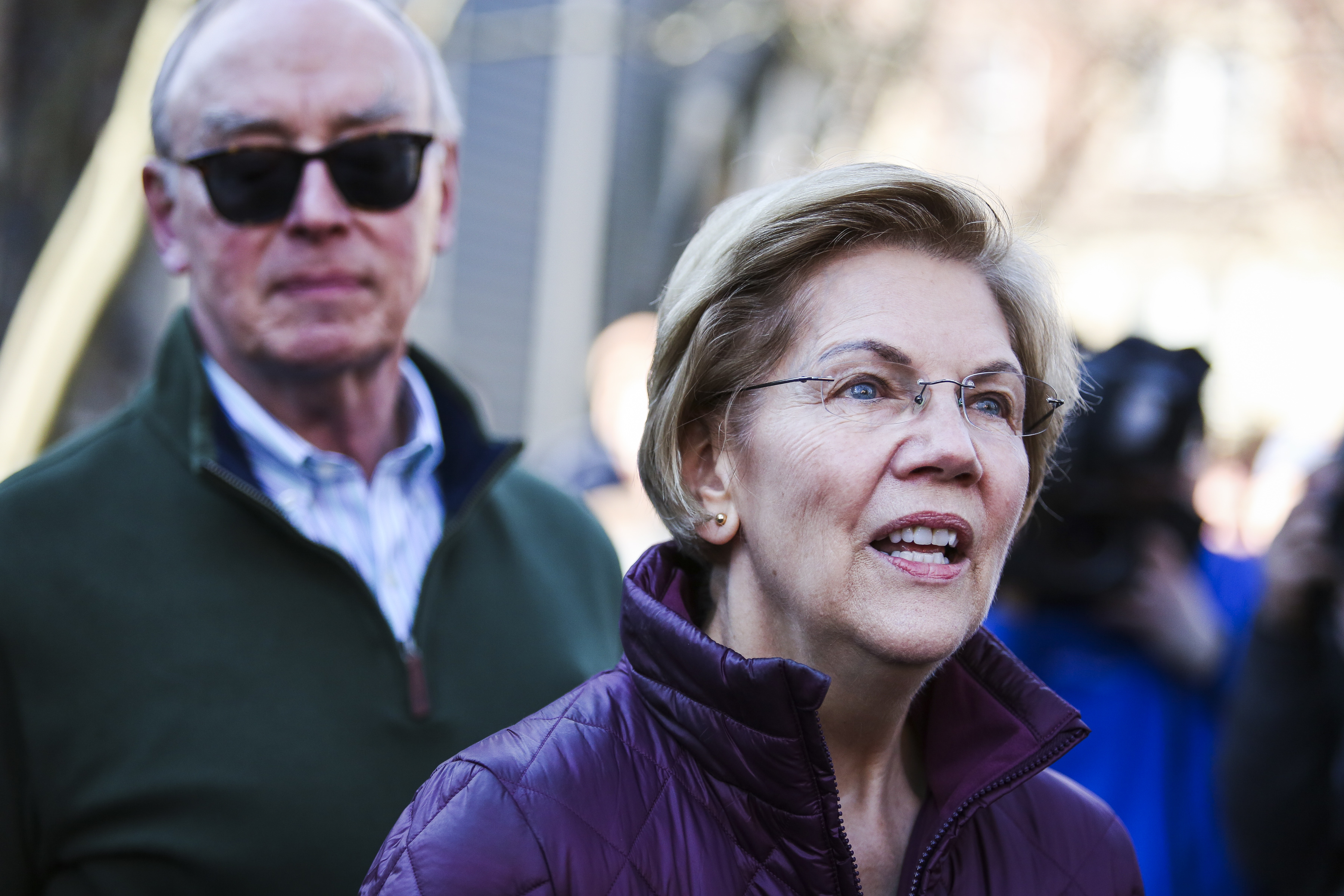What the end of Elizabeth Warren’s campaign means
With Warren out of the picture, like Bloomberg the day before, the race has narrowed to two viable candidates to take on Trump in November


A free daily email with the biggest news stories of the day – and the best features from TheWeek.com
You are now subscribed
Your newsletter sign-up was successful
Elizabeth Warren announced she will end her campaign to be the next president of the United States yesterday.
Her exit comes after she failed on Tuesday to make a significant impact during important votes in multiple states across the country, a day known in the US as Super Tuesday, and comes a day after the withdrawal of billionaire Mike Bloomberg, who abandoned his bid for the same reason.
Senator Warren’s departure simplifies the race. Tulsi Gabbard, the congresswoman from Hawaii, is still technically a participant, but in reality the presidential election in November will be contested between Donald Trump and one of Joe Biden and Bernie Sanders.
The Week
Escape your echo chamber. Get the facts behind the news, plus analysis from multiple perspectives.

Sign up for The Week's Free Newsletters
From our morning news briefing to a weekly Good News Newsletter, get the best of The Week delivered directly to your inbox.
From our morning news briefing to a weekly Good News Newsletter, get the best of The Week delivered directly to your inbox.
Why did Warren’s candidacy fail?
Speaking outside her house to announce the end of her campaign, Warren summed up what many believe was the central reason for its failure.
“I was told at the beginning of this undertaking that there were two lanes: a progressive lane that Bernie Sanders is the incumbent for, and a moderate lane that Joe Biden is the incumbent for, and no room for anyone else,” Warren said. “I thought that wasn’t right. Evidently, I was wrong.”
Warren won over many Americans with her promises to combat the inequities behind the 2008 financial crash, her detailed left-leaning policy proposals, and her down-to-earth persona.
A free daily email with the biggest news stories of the day – and the best features from TheWeek.com
In the end, however, progressive voters flocked in greater numbers to Bernie Sanders, who outflanked her on the left, whose name recognition was much higher after his 2016 battle with Hilary Clinton, and whose pugnacious style energises crowds.
For some, Warren’s exit from the campaign, marking as it does the end of any hopes for a woman in the Oval Office next term, is yet another example of the double standards facing women who seek power in the US.
“Sexism played a role in the failure of all her arguments,” writes Elie Mystal in The Nation. “Some people openly said that a woman couldn’t beat Donald Trump. Other people made the same point, but more subtly… She was called ‘shrill,’ she was called a ‘school-marm,’ she was called a ‘snake.’ She got criticized for not hitting certain candidates “hard enough” and then got criticized for vaporizing other candidates down to the molecular level.”
Warren herself acknowledged this reality yesterday, calling it a “trap” facing female candidates - if they confront the issue of sexism, she said, they’re called a “whiner”, but if they deny it “about a bazillion women think: ‘what planet do you live on’.”
The race to come
One of two white men in their seventies will now take on a third in November, and of the two, the establishment candidate is the frontrunner.
Only a week ago Biden’s campaign seemed lifeless, but his Lazarus-like comeback surge on Super Tuesday means the veteran vice president has now leapfrogged Sanders as the favourite.
“Joementum” is now undeniable, and likely to continue, with polls in the next batch of primaries due to be held this coming Tuesday heavily favouring Barack Obama’s former deputy.
“It’s done unless Joe makes some horrible mistake,” said Paul Maslin, a top Democratic pollster and campaigner, citing the fact that many of the states soon to vote have a high proportion of African American voters. “He will win blacks 75-25 minimum from here on in. He doesn’t have Hillary’s negatives. And people want to beat Trump big time. This race is over.”
Sanders continues to point to the movement of young people and latinos he has mobilised behind him, but there are doubts about that too since Tuesday.
“Most worrying for Mr. Sanders’s campaign, the hoped-for youth turnout did not materialize” during Super Tuesday, says The New York Times, “while Mr. Biden enjoyed the kind of suburban surge that handed Democrats the 2018 midterms.”
The crucial state to watch this Tuesday will be Michigan, which is, CNN argues, “hugely important, symbolically speaking, given that it was one of three critical Midwestern states President Donald Trump flipped to his side in the 2016 presidential race.”
One wildcard that could upset Biden’s resurgence will be which candidate Warren voters will favour now she has left the race, and “exit poll data indicates Sanders is the most natural beneficiary of Warren’s decision to end her campaign,” reports The Washington Post.
“Next week’s five primaries in Idaho, Michigan, Missouri, Mississippi and Washington will be key test of whether Sanders can consolidate support among Warren backers who are clearly closer to him on ideological grounds.”
William Gritten is a London-born, New York-based strategist and writer focusing on politics and international affairs.
